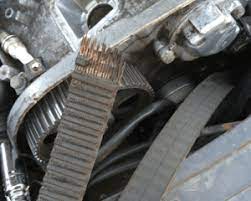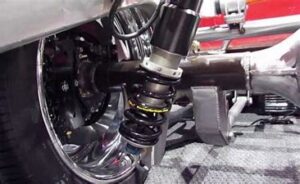How smooth and simple it is to turn the key and your car starts! Right? But have to thought about the complexity which provides you with this smoothness. It’s the charging system in your car which maintains all these functioning. And as a result, without this system, your vehicle won’t run, drive or even start at all.  So, in this article, we will have a detailed description of your car’s charging system, what causes the charging system failure and how to deal with and fix such situations. However, the best way to avoid such issues is to maintain your vehicle and regular service.
So, in this article, we will have a detailed description of your car’s charging system, what causes the charging system failure and how to deal with and fix such situations. However, the best way to avoid such issues is to maintain your vehicle and regular service.
Thus, now let’s begin or initiate with the topic.
Table of Contents
What Is A Charging System?
The charging system is the system that is responsible for charging your battery and provides electrical energy for the radio, lights, and other essential features necessary for running the car smoothly. It consists of a few critical components: alternator, battery, wiring, and electrical control unit (ECU).  The components, as mentioned earlier, are seen in modern cars, whereas in an older car, you may also observe or see a regulator. The alternator in the charging system-generated electrical power is responsible for running accessories and recharging the battery. Its principal function is to turn mechanical energy into electrical energy.
The components, as mentioned earlier, are seen in modern cars, whereas in an older car, you may also observe or see a regulator. The alternator in the charging system-generated electrical power is responsible for running accessories and recharging the battery. Its principal function is to turn mechanical energy into electrical energy.
The regulators present in the older cars act as traffic cops, which usually control the alternator’s output in the vehicle—the battery in the system is regarded as the reservoir of electrical power. And the primary function of the battery is cranking the engine, which results in the start of the car.
What Are The Causes Of Charging System Failure?
The charging system, as we know, is one of the crucial systems in the car. Thus, its failure would result in multiple issues and generates cessation of various functions. However, we should also know the cause of the system failure; hence the common causes responsible for non-functioning charging systems are as follows:
1. Alternator Issues
 Most of the time, the alternator is the root cause of the problem. The alternator usually maintains and functions in the conversion of mechanical energy produced into electrical energy.
Most of the time, the alternator is the root cause of the problem. The alternator usually maintains and functions in the conversion of mechanical energy produced into electrical energy.
Although the life of alternators is quite long, approximately a hundred thousand miles, or may even last longer than the car, certain conditions may result in its failure.
However, testing the alternator is quite an easy task and can perform very smoothly. Also, through this method, you can check both battery and an alternator. For this, you need an old battery or discharged battery, which will help you know the efficiency of your alternator.
2. Worn Or Broken Belts
 Another cause for the failure of the charging system in the car is a faulty alternator belt. Here, in this case, the broken belt or worn alternator belt slips so severely that it faces severe issues. As a result, the working of the alternator is useless unless the belt rotates at the proper speed to transfer its working potential to the next level.
Another cause for the failure of the charging system in the car is a faulty alternator belt. Here, in this case, the broken belt or worn alternator belt slips so severely that it faces severe issues. As a result, the working of the alternator is useless unless the belt rotates at the proper speed to transfer its working potential to the next level.
Thus, the voltage output drops and causes the system to act as if something is wrong with the alternator.
In older cars, it’s pretty challenging to know the faulty break while driving, but in newer vehicles, it is an easy task to analyze this issue. As modern cars have a single belt to perform or drive everything, its breakage will cause the car to overheat, switching on warning lights over the vehicle’s dashboard, and the steering wheel becomes heavy.
3. Corroded Wires And Connections
 Corrosion is very often observed in vehicles if it is not appropriately maintained. After all, a little moisture in the presence of air over the metal. It is such an easy task for the growth of corroded surfaces in the car.
Corrosion is very often observed in vehicles if it is not appropriately maintained. After all, a little moisture in the presence of air over the metal. It is such an easy task for the growth of corroded surfaces in the car.
Hence, to prevent your vehicle from these unstable issues, always ask your mechanic to clean all the connections and ensure that the battery clamps are clean and tight. Also, have them inspect the internal alternator wirings and connection to avoid loose linkage of wires.
And don’t forget to check all the fusible links and search for burn links if present. Replace all the necessary wirings and connections while servicing your car as it is the only solution to deal with the issue related to the situation.
4. Battery Problem
 As mentioned earlier, along with the alternator, it is also one of the common causes of the problem’s generation. The dead battery may occur or face issues due to multiple reasons. So first of all, you need to find the cause of the problem. For example, there are chances that the battery’s life is no longer available and hence facing the damage.
As mentioned earlier, along with the alternator, it is also one of the common causes of the problem’s generation. The dead battery may occur or face issues due to multiple reasons. So first of all, you need to find the cause of the problem. For example, there are chances that the battery’s life is no longer available and hence facing the damage.
We suggest you replace your battery every three to five years to smooth the charging system’s smooth working. However, the life expectancy of automotive batteries is approximately two to five years only.
How Much Does It Cost To Fix The Charging System?
The charging system performs multiple functions, and our vehicle depends a lot on it; thus, its fixation is a necessary task that must complete soon.
With the discussion of the causes of charging system failure, we conclude that alternator failure is the most common. The fixation or replacement of the alternator may range between $100 to $350. Depending on the make and model, it may even vary from about $350 to $450. Hence, the overall replacement of the alternator and labor expenses in overall total are regarded as quite an expensive task.
The simple fixes like worn alternator belts or dead batteries do not cost much, i.e., $50 to $80. However, the best option to avoid all these issues is the timely service of the vehicle.
Can You Drive With Check Charging/Charging System Failure?
Conclusion
I hope the above details and discussion will help you deal with the situation of charging system failure. Whenever you are stuck in such issues, you’ll solve them calmly and smartly with all the necessary precautions.
However, if your doubts or queries related to the topic persist, we request you to please comment below in the comment section. And we will answer all the questions as quickly as possible.



